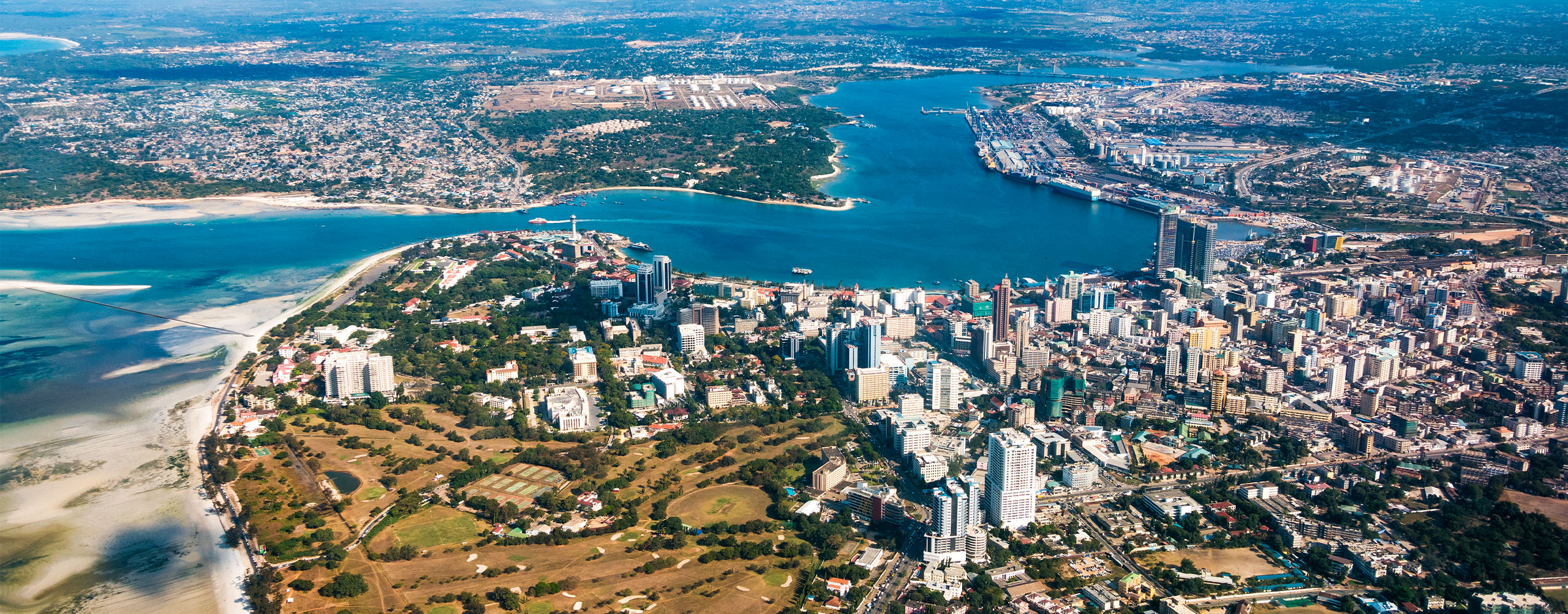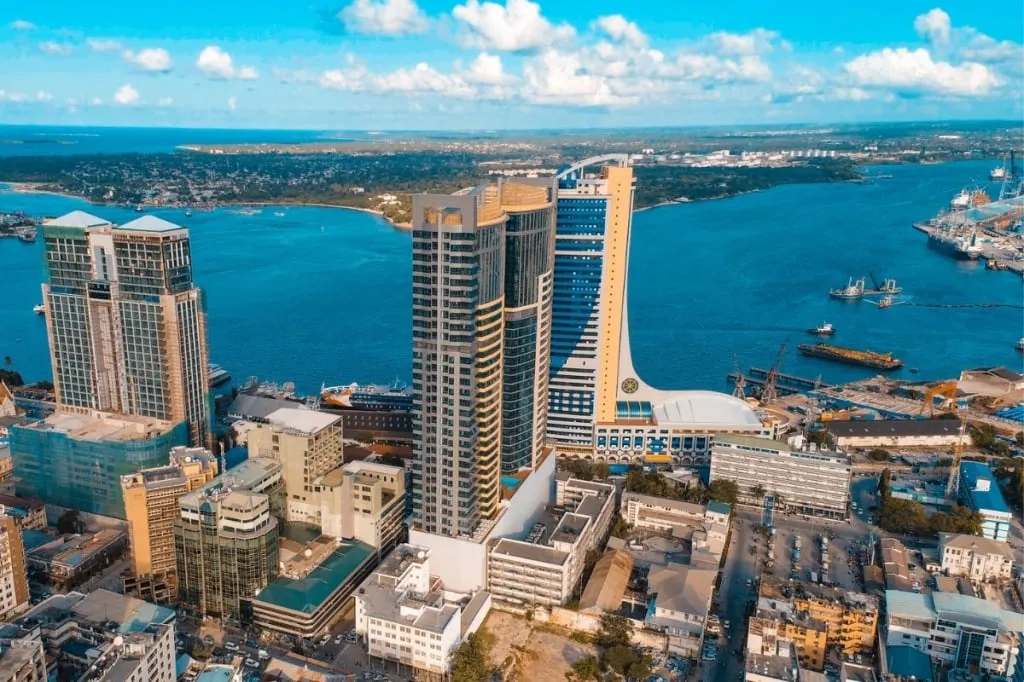



Dar es Salaam, a major city and commercial port on Tanzania’s Indian Ocean coast, grew from a fishing village. The open-air Village Museum has re-created the traditional homes of local and other Tanzanian tribes and hosts tribal dancing. It’s part of the National Museum, which offers Tanzanian history exhibits, including the fossils of human ancestors found by anthropologist Louis Leakey. ― Google
Best months: June to October – dry, sunny, and ideal for beach visits and city exploration.
Short dry season: January–February – also good for travel.
Avoid:
March–May – long rainy season (humid and heavy downpours).
November–December – short rains, though travel is still possible.
By air:
Julius Nyerere International Airport (DAR) – Major hub with flights from Africa, Europe, and the Middle East.
By ferry:
Fast ferries to and from Zanzibar (2 hours); several departures daily.
By road:
Connected to other Tanzanian cities like Arusha, Morogoro, and Dodoma by bus or private car.
National Museum of Tanzania – Exhibits on human evolution, colonial history, and traditional culture.
Village Museum – Open-air ethnographic museum with traditional huts and cultural performances.
Askari Monument – Iconic statue honoring African soldiers in WWI, located in the city center.
Azania Front Lutheran Church – German colonial-era building with ocean views.
Kariakoo Market – Massive local market for clothes, food, electronics, and daily goods.
St. Jose
Coco Beach (Oyster Bay) – Popular local beach for weekend hangouts, music, and food vendors.
Mbudya Island – Pristine island reached by boat (20–30 mins); ideal for snorkeling, swimming, and relaxing.
Bongoyo Island – Marine reserve with coral reefs, seafood grills, and hiking trails.
Kunduchi Beach – Quieter, with nearby resorts and water parks.
White Sands Beach Resort & others – Offer day passes for private beach access and amenities.
ph's Cathedral – Historic church built in Gothic style during the German colonial period.
Island hopping – Visit Mbudya and Bongoyo for turquoise water and white sand
Cultural tours – Explore Tanzanian traditions at the Village Museum
Food tours or cooking classes – Sample Swahili dishes like coconut curries, grilled seafood, and pilau
Shopping – Markets and local boutiques for kitenge fabric, wood carvings, spices
Visit art galleries – Tingatinga Art Center and Nyumba ya Sanaa for colorful local art
Nightlife – Rooftop bars, beach clubs, and Afrobeat lounges are popular
Luxury: Seaview hotels, business-class hotels, and beach resorts (Hyatt, Serena, Johari Rotana)
Mid-range: Comfortable city hotels near downtown or the peninsula
Budget: Hostels and guesthouses in areas like Mikocheni or Kariakoo
Resorts: Found along the northern beaches or on nearby islands
Local dishes:
Mishkaki (grilled meat skewers)
Chipsi mayai (French fry omelet)
Urojo soup, coconut rice, fried fish
Seafood: Abundant and fresh from the Indian Ocean
Top spots:
The Slipway – Waterfront dining with multiple restaurants
305 Karafuu – Upscale, intimate dining
Cape Town Fish Market – Oceanfront with seafood and sushi
Village Museum Restaurant – Traditional Tanzanian meals in a cultural setting
A diverse mix of Swahili, Arab, Indian, and African influences.
The city is mostly Muslim — modest dress is appreciated, especially in markets and older areas.
Swahili is widely spoken; English is commonly used in tourism and business.
Music, dance, and storytelling are part of daily life — you’ll hear Bongo Flava, Taarab, and Afrobeats everywhere.
Traffic can be intense – Allow extra time for airport or ferry travel.
Use Bolt or taxis – Safer than unregistered motorcycle taxis (boda-bodas).
Carry some cash – Mobile money is common, but cards are not always accepted.
Avoid beach swimming in city areas – Go to the islands or northern beaches for cleaner water.
Safety – Stick to well-lit areas at night, and keep valuables secure in markets.